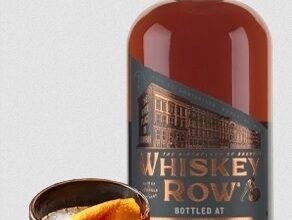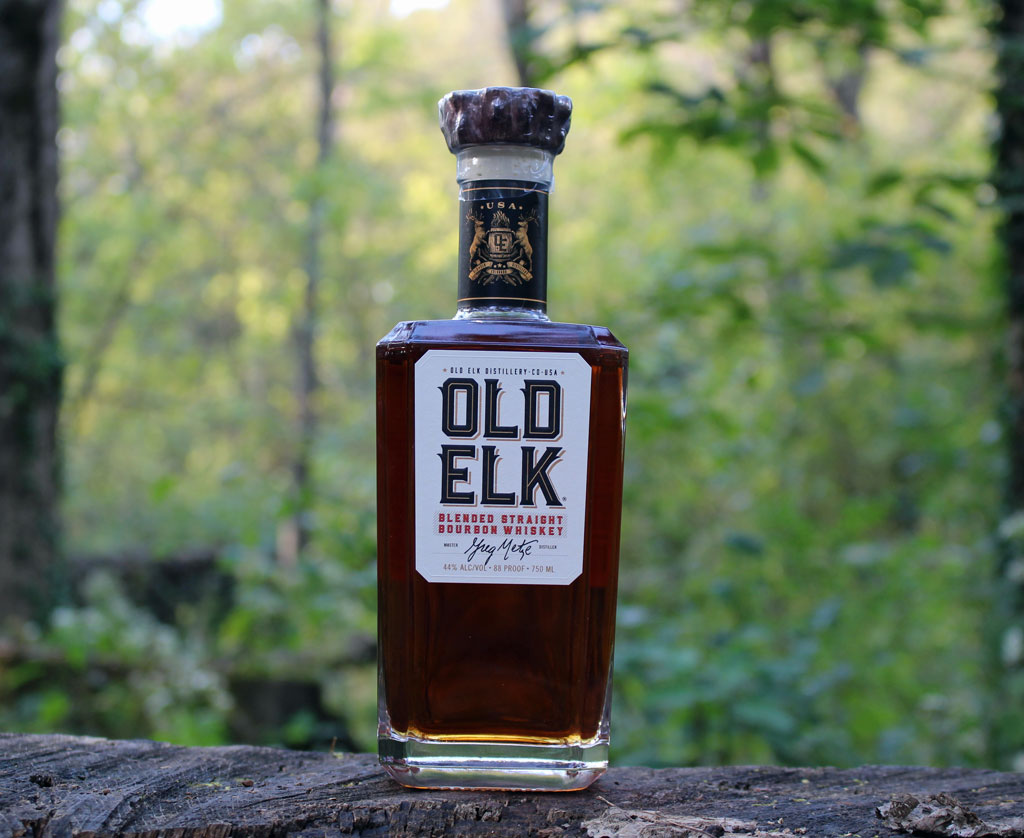Q&A With Brent Elliott Of Four Roses
A Chat With Lawrenceburg, Kentucky’s Newest Master Distiller
By Richard Thomas

Brent Elliott
(Credit: Four Roses)
The September 1st retirement of Jim Rutledge, Four Roses’ longtime Master Distiller and the architect of the distillery’s comeback from relative obscurity, drew plenty of press coverage, and rightfully so. It was the last day in a full, respected and accomplished career, but sometimes overlooked was that September 1st was also the first day for his successor, Brent Elliott.
Elliott worked his way up to Master Distiller through the distillery’s Quality Department. We were lucky enough to catch him just a week into his new job, and had a chat about both his past and his future.
RT: After talking with several people who have moved up to the role of Master Distiller or Blender in recent years, I often find how much they have had a major hand in different expressions for years prior to taking the top job, up to the point of perhaps having a creation or two already to call their own. You’ve been with Four Roses for a decade and Quality chief for six. What have you had a big hand in so far? Anything out there you can call all your own?
BE: Sensory evaluation and mingling were part of my training from my first day at Four Roses and continue to be one of the most important aspects of my job. I began contributing to the formulation of our standard products probably one or two years after I started with Four Roses. My abilities and contributions increased until I took over the responsibility of inventory management and product mingling in 2009. From the beginning, I have had the opportunity to learn from Jim Rutledge as we worked closely together on all formulations, especially the Limited Editions.
RT: That job title “Quality Director” is close to quality control, which in turn conjures images of a wretched barrel or botched batch that just had to go. Have you ever come across whiskey that was just not what you were expecting in a bad way?
BE: Being responsible for quality, I am always involved when something is questionable. That is part of the job and it happens with glass, labels, closures, shippers, and in the worst scenarios, liquid.
Fortunately we have very stringent quality measures at the “front end” to ensure that we don’t have any surprises downstream. This starts with our intense inspection of every load of grain as it arrives at the distillery. Probably the most important quality check of the grain is the sensory analysis. Samples are pulled from various depths and areas of each load, taken to the grain lab, and heated in a nosing glass as full kernels and ground. These samples are then smelled to assure that the grain possesses the expected clean and robust aromas with no signs of defect. If the load does not meet our requirements, it is not unloaded, as we reject it.
Rarely, however, a small pocket of musty grain can make it through our inspection process and into the cook. It doesn’t take much bad grain to affect a batch, but when this happens, we catch it when our sensory panel checks the distillate as it comes off the still. While this is not exactly wretched, it is absolutely not the kind of character that we want in our Bourbon. If anyone from our sensory panel senses a hint of must or mold, we immediately reject the entire batch (about one-days production) and sell it off to be re-distilled to industrial ethanol. It’s a loss of time and materials, but if we barreled this liquid it would also be a waste of wood because we would not want to use it.
RT: These days being a Master Distiller is as much about public relations as it is about making whiskey. What do you think the challenges will be of that part of the job?
BE: I think my biggest challenge will be balancing my work at the distillery and my work with the public. As Master Distiller, I want to be the ultimate ambassador to the brand, but I’ve been on the production side of things for so long—and will continue to be—that Quality will continue to be my priority. If we cannot maintain the same high level of quality that our consumers expect, there will be no brand to support.
Something interesting that I am adjusting to is the public’s perception of me. I have always been very engaged with the public and have always felt casual in my interactions, however it’s a little different now. With the Master Distiller title people inevitably pay closer attention to what I say and take me more seriously. I am serious about bourbon, but I am not an overly serious person.
RT: As a UK graduate, let’s say there was a student at UK right now who is reading this and thinking “Wow, I really want to work in the bourbon business.” Maybe he is in chemistry, or maybe communications or business. What advice do you have for them on breaking into bourbon?
BE: As with any interesting industry, the Bourbon industry attracts people who are looking for more than just a paycheck. This obviously creates competition for the available positions. I was lucky to join Four Roses before the Bourbon boom so there was not as much interest as there is today. Also, I had quite a few years of applicable experience and was willing to make some sacrifices to move back to KY when this opportunity arose. The timing was perfect for me in every way. I had the right education and was old enough to have experience, but still without children, so my wife and I could afford to be a little daring. It was one of the best decisions I have ever made.
To achieve anything I think the best advice is to develop a solid idea of what the goal is. Once that is decided, you should reach out to a few distilleries and try to get in contact with someone in a similar role (you will find a lot of wonderful people in the industry who are willing to help) and ask what education and experience would be helpful to reach your goals. If you are determined, patient and learn where to focus your efforts, it will happen. If possible, finding a part time job at a distillery is a great way to meet people, learn the business, and get a foot in the door.
RT: You’re from Owensboro! I can’t let that go without asking you what you think of mutton barbecue! Any suggestions on pairing bourbon with that Western Kentucky-style barbecue?
BE: I love this question. I still have family in Owensboro so I am there quite a bit and most every time I visit I dig into some Barbeque. Since you asked this I am really wanting to experiment with pairings the next time I’m there. My mouth is watering just thinking about it. I think I’ll start with Small Batch with a cube of ice and a nice mutton sandwich. I imagine the rich flavors of the Small Batch will balance nicely with the tang of the mutton. Then maybe I’ll try some Yellow Label with a bowl of Burgoo, and then some Single barrel with barbecue chicken, and then… I’ll have a definite answer for you after Thanksgiving.


